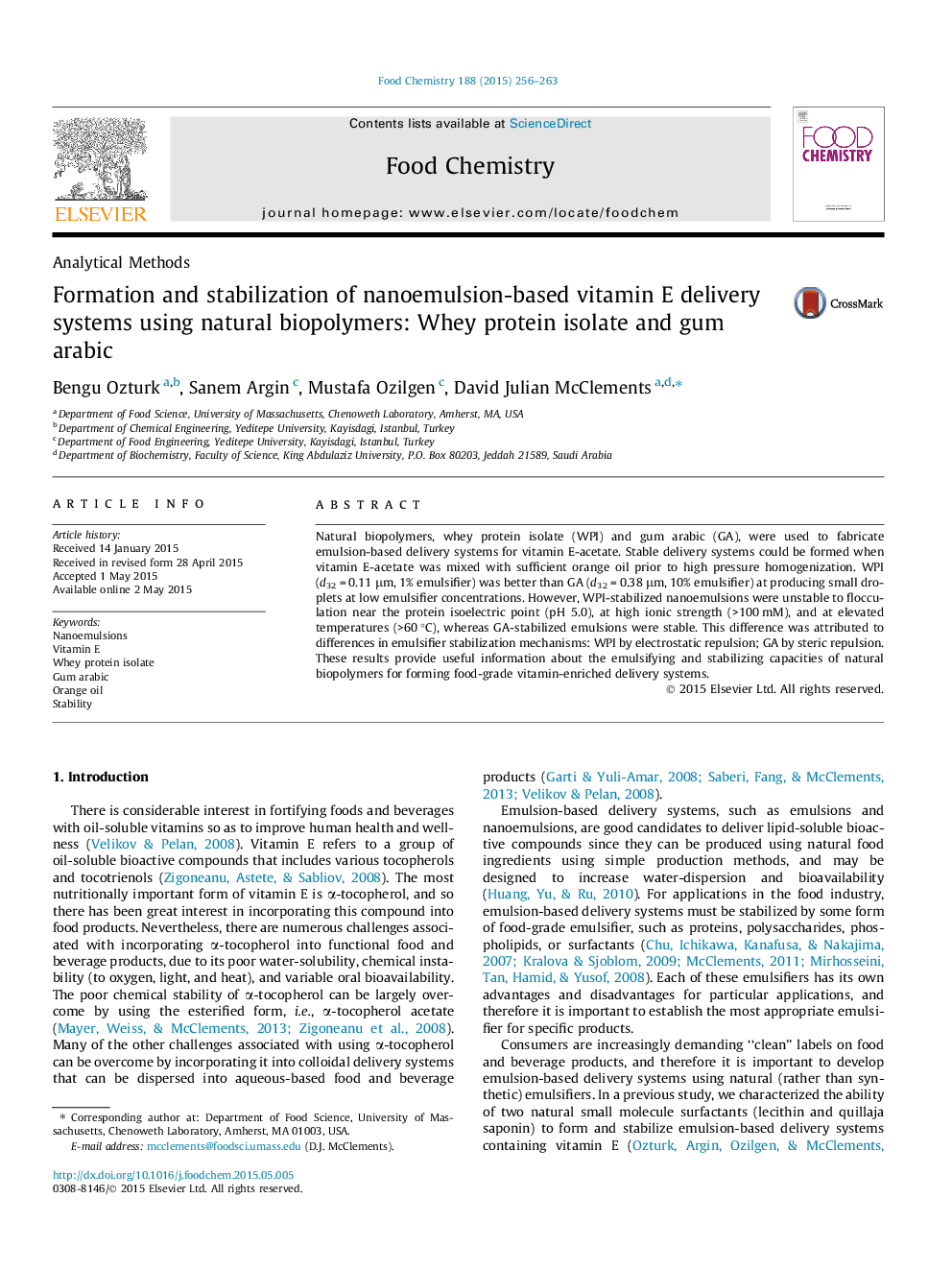| Article ID | Journal | Published Year | Pages | File Type |
|---|---|---|---|---|
| 7591668 | Food Chemistry | 2015 | 8 Pages |
Abstract
Natural biopolymers, whey protein isolate (WPI) and gum arabic (GA), were used to fabricate emulsion-based delivery systems for vitamin E-acetate. Stable delivery systems could be formed when vitamin E-acetate was mixed with sufficient orange oil prior to high pressure homogenization. WPI (d32 = 0.11 μm, 1% emulsifier) was better than GA (d32 = 0.38 μm, 10% emulsifier) at producing small droplets at low emulsifier concentrations. However, WPI-stabilized nanoemulsions were unstable to flocculation near the protein isoelectric point (pH 5.0), at high ionic strength (>100 mM), and at elevated temperatures (>60 °C), whereas GA-stabilized emulsions were stable. This difference was attributed to differences in emulsifier stabilization mechanisms: WPI by electrostatic repulsion; GA by steric repulsion. These results provide useful information about the emulsifying and stabilizing capacities of natural biopolymers for forming food-grade vitamin-enriched delivery systems.
Related Topics
Physical Sciences and Engineering
Chemistry
Analytical Chemistry
Authors
Bengu Ozturk, Sanem Argin, Mustafa Ozilgen, David Julian McClements,
